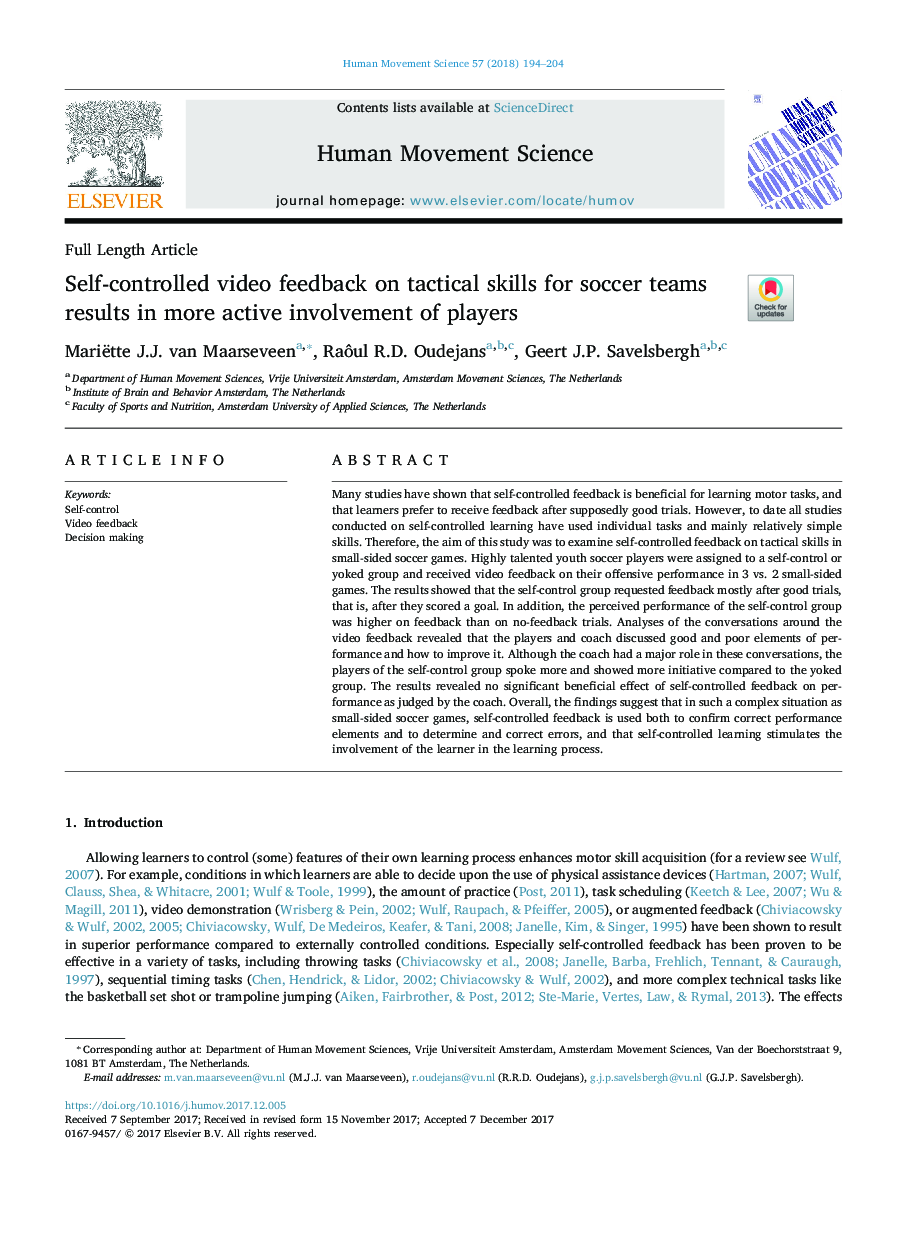| Article ID | Journal | Published Year | Pages | File Type |
|---|---|---|---|---|
| 7290984 | Human Movement Science | 2018 | 11 Pages |
Abstract
Many studies have shown that self-controlled feedback is beneficial for learning motor tasks, and that learners prefer to receive feedback after supposedly good trials. However, to date all studies conducted on self-controlled learning have used individual tasks and mainly relatively simple skills. Therefore, the aim of this study was to examine self-controlled feedback on tactical skills in small-sided soccer games. Highly talented youth soccer players were assigned to a self-control or yoked group and received video feedback on their offensive performance in 3 vs. 2 small-sided games. The results showed that the self-control group requested feedback mostly after good trials, that is, after they scored a goal. In addition, the perceived performance of the self-control group was higher on feedback than on no-feedback trials. Analyses of the conversations around the video feedback revealed that the players and coach discussed good and poor elements of performance and how to improve it. Although the coach had a major role in these conversations, the players of the self-control group spoke more and showed more initiative compared to the yoked group. The results revealed no significant beneficial effect of self-controlled feedback on performance as judged by the coach. Overall, the findings suggest that in such a complex situation as small-sided soccer games, self-controlled feedback is used both to confirm correct performance elements and to determine and correct errors, and that self-controlled learning stimulates the involvement of the learner in the learning process.
Related Topics
Life Sciences
Neuroscience
Cognitive Neuroscience
Authors
Mariëtte J.J. van Maarseveen, Raôul R.D. Oudejans, Geert J.P. Savelsbergh,
